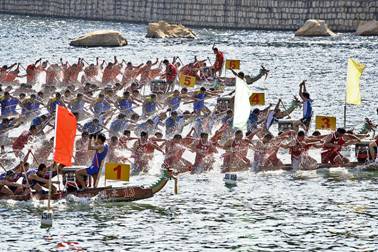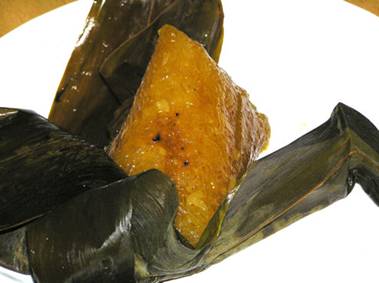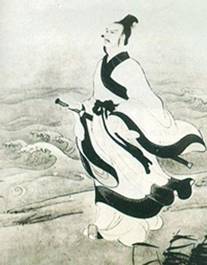Many of us are looking forward to the upcoming Dragon Boat Festival holiday, but admittedly even I don't really understand what it is that the Chinese people are celebrating, so I thought it merited a closer look. Dragon Boat Festival occurs on the 5th day of the 5th lunar month on the ancient Chinese calendar. This year, it falls on Thursday, May 28th and Friday, May 29th. We then get Saturday off and work again, unfortunately, on Sunday.

Photo: lidxplus
The Dragon Boat festival is characterized by its ornately painted boats with different teams racing on the lake with traditional Chinese dragonheads fastened to the front of the boats. It is recognized as one of the oldest known sports competitions because it started over 2000 years ago with a man named Qu Yuan.

Photo: Benjwong
Like almost everything Chinese, there is a famous old legend that has been passed on for literally thousands of years and this story is no exception. There are two legends, but the most popular stems from a poet named Qu Yuan who worked in Emperor Huai’s court in the Chu State during the Warring States period, which lasted from 475-221 B.C. Qu Yuan, who lived 340 BC - 278 BC, was greatly respected for being a wise scholar of great integrity who fought openly against corruption. Needless to say, he became extremely unpopular in the court and was exiled. During this time, he continued to write with a fervor that awarded him the admiration of the people. His most recognized works include Heavenly Questions and Songs of the South (Chu). He is admired for his great love of the Chu State and when he heard of its defeat by neighboring Qin State he was so heartbroken and distraught that he drowned himself in the Mi Luo River. The Qin State was governed by the famous Emperor Qin Shi Huang, most known for his tomb in Xian with his absorbing and unrivaled Terracotta Warriors. This emperor is also credited for creating a unified China in the year 221 B.C.
When Qu Yuan committed suicide, the villagers jumped into their fishing boats and raced to the spot where he was last seen to find him, but to no avail. To save his body from the nibbling fish, they threw sticky zong zi rice triangles into the river to divert the fish. The tradition stands to this day that on this holiday people should eat the deliciously glutinous rice stuffed usually with pork, beans, and other substances and then steamed in a bamboo leaf to commemorate the occasion while glugging rice wine, called bai jiu.

Photo: ttf
For the dragon boat races, there are usually about 22 people in the boat with 20 of them being paddlers in a narrow, long boat that ranges in length from 40-100ft. There is one designated drummer and one person at the tail of the dragon. The key job of the drummer is to represent the “heartbeat” of the dragon and that person is therefore responsible for the stroke timing of the paddles in the water.
So this Dragon Boat Holiday, you can appreciate it for what it is instead of writing it off as another holiday that you don't understand. Go celebrate by eating some zong zi. Drink the bai jiu if you dare. All over China from Hunan to Shanghai there will be dragon boat races so see if you can catch one during your 3 day holiday in the sun!
***
Related Links
How to Get a Drink Thrown in Your Face Over Panda Sex
Yet Another Reason I Freakin' Love This Country
Tragedy on Hangzhou's Heavenly Streets
Warning:The use of any news and articles published on eChinacities.com without written permission from eChinacities.com constitutes copyright infringement, and legal action can be taken.
All comments are subject to moderation by eChinacities.com staff. Because we wish to encourage healthy and productive dialogue we ask that all comments remain polite, free of profanity or name calling, and relevant to the original post and subsequent discussion. Comments will not be deleted because of the viewpoints they express, only if the mode of expression itself is inappropriate.
Please login to add a comment. Click here to login immediately.